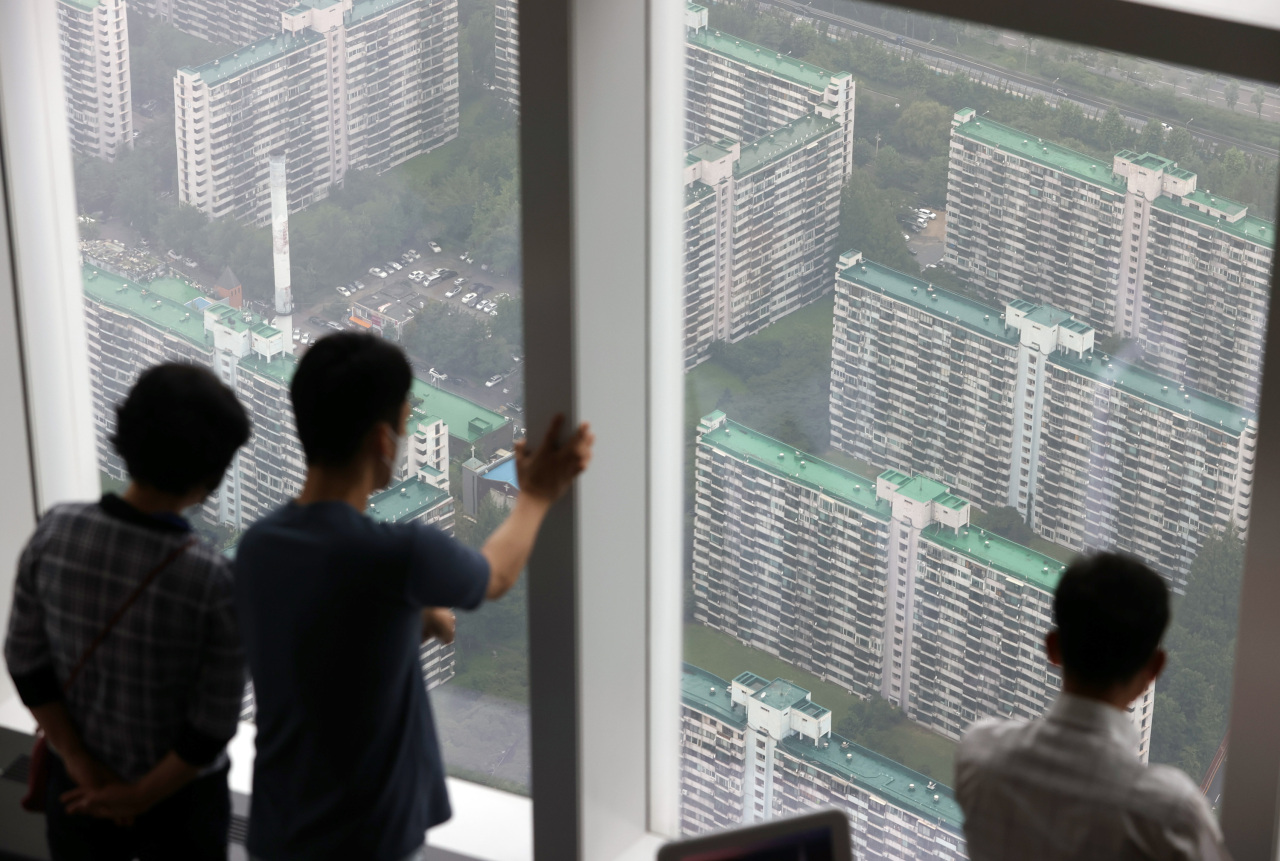 |
(Yonhap) |
New legislation levying steep taxes on owners of multiple homes and protecting the rights of tenants faces strong resistance from landlords and civic groups, despite the government’s commitment to stamp out housing speculation.
Angry landlords are planning to hold a candlelight vigil in Gwanghwamun, central Seoul, Aug. 15, which would be the latest in a series of rallies held to protest the government’s real estate policies. The organizers call themselves a “tax resistance movement.”
Homeowners are planning more collective actions. Several online communities are seeking to lodge a constitutional complaint against the laws.
“Due to policies focusing on restraining the demand, prospective home consumers resist and (the number of) people opposing taxation is also growing,” said Shim Kyo-un, a professor of real estate studies at Konkuk University.
The National Assembly passed a set of real estate-related bills July 30 and Aug. 4 focusing on imposing heavier taxes on housing transactions and the possession of homes, as well as restricting the rights of landlords when they sign contracts with tenants.
The new law enables tenants to renew their two-year contracts for another two years, which used to be depend on landlords‘ decision. A cap of 5 percent on increases in deposits will be placed when the contracts are extended.
Those who own more than one home and who seek short-term profits off property trading will face a higher cost burden as a result of increases in property tax, income tax and local tax.
The bills were overwhelmingly approved by the ruling Democratic Party of Korea, which controls 176 of the 300 seats in the National Assembly, while the main opposition United Future Party boycotted the voting sessions.
On Wednesday, Democratic Party Chairman Lee Hae-chan warned against speculative home buying and multiple home-ownership.
“I clearly say that it will be beneficial for (multiple-home owners) to dispose of their houses as soon as possible as we will redeem all the profits from speculation with taxes,” he said.
The opposition party and some civic groups said the new legislation runs the risk of violating the Constitution as it excessively restricts the property rights of homeowners. They also believe the drastic measures will disrupt the free market.
According to a survey conducted on 1,000 adults by Realmeter and released Thursday, 49.5 percent of respondents opposed the new tenant protection laws, while 43.5 percent supported them.
(
hnpark@heraldcorp.com)





![[Exclusive] Hyundai Mobis eyes closer ties with BYD](http://res.heraldm.com/phpwas/restmb_idxmake.php?idx=644&simg=/content/image/2024/11/25/20241125050044_0.jpg)
![[Herald Review] 'Gangnam B-Side' combines social realism with masterful suspense, performance](http://res.heraldm.com/phpwas/restmb_idxmake.php?idx=644&simg=/content/image/2024/11/25/20241125050072_0.jpg)

